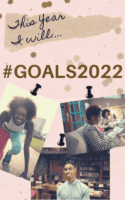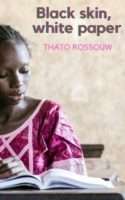“Once you learn to read, you will be forever free.”
– Frederick Douglass
It is well known that in South Africa there is a crisis in education. Many learners drop out before they get to matric, and many learners do not get a good enough matric to study further. There is obviously no one, easy solution to this problem. But there is something that comes very close – and that is reading for pleasure.
A major study in the UK found that reading for pleasure is linked to success at school, and success after school as well. The link is even stronger than the educational level of parents. This means that children in England who are from poor backgrounds, but who read a lot, actually do better academically than children who have educated parents, but do not read. The same study showed that young people who read for pleasure did better, not only in language classes, but also in maths. This is a very significant finding – reading improves just about everything!
I was delighted to find this research because, firstly, I love reading myself. Secondly, as a teacher, it explained something I had come to realise in my teaching of English at various high schools in South Africa. That is, reading silently, with interest and attention, was one of the most useful activities for my learners – more useful than doing many carefully prepared lessons and worksheets. My keen readers, who read in their own time, and read a variety of texts, were generally my most insightful and curious students. They also often did well in their other subjects.
It is easy to see that in language classes reading would improve your vocabulary and your language. In fact, reading is more effective for developing an understanding of language in context, and is more successful in developing mastery of a language, than grammar lessons are. “Research over a period of nearly 90 years has consistently shown that the teaching of school grammar has little or no effect on students’ writing.” And in fact, what is most helpful is doing a lot of reading and writing.
I saw the truth of this research in my own lessons, where formal grammar lessons helped my learners with formal grammar questions in exams, but did not improve their own writing. So, although they could change a sentence from the present tense to the past tense in a language test, for example, this did not mean that they used tenses correctly when they wrote their own essays. And this is the important thing: no-one measures your language ability outside school with formal grammar tests. They measure it by how you speak and write in real-life settings. It seems surprising, but reading actually improves your grammar more than grammar lessons do!
But there are many more benefits to reading than just language and vocabulary development. Reading, particularly reading stories, develops a range of skills. Stories have been an important part of all cultures for thousands of years, and are a way of making sense of our world. Many researchers believe story-telling is crucial to human development. Through stories, listeners and readers learn to understand cause and effect, to ask questions, to think about ‘what if’, to use logic and deduction as they make connections between events and characters.
Neuroscientists – scientists who study the brain – have found that reading stories is very good for general brain development. As Albert Einstein, the world-famous scientist, once said: “If you want your children to be intelligent, read them stories. If you want them to be more intelligent, read them more stories.”
One of the important ways that reading can affect us is through the development of empathy. As you read, you are guided to imagine being the character in the book. This character may be very different from you, and so you start to see the world a little differently, through that character’s eyes. Stories – both true stories and made-up stories – are powerful because they appeal to our hearts and emotions, rather than just giving us facts. If we read the story of a refugee’s own experiences, we are able to imagine what it is like to be a refugee, and to understand the consequences of war and conflict on real human life, far more than if we just read a factual account. These stories do not even have to be ‘true’ – they can be from writers’ imaginations and research – but they contain enough ‘truth’ to move us in a way that nothing else can.
A love for reading can start at an early age. In homes where there are lots of books, children learn that reading is enjoyable and fun because their parents read to them, and they laugh over the stories and pictures together. At school, teachers are too busy teaching what the letters are and how to put them together, and so little attention is paid to developing children’s enjoyment of reading. So, children who come from homes where reading is not encouraged do not learn to love reading. Instead, they see reading as a difficult chore that you have to do for tests and exams.
The learners I taught, many of whom were from homes where there were few or no books, did not see that writing was a form of communication, created by a fellow human. I often had to remind them that they didn’t need to believe or agree with everything they read! It is important to remember that reading is more than just working out what the words mean and how to say them properly out loud. It includes thinking about the ideas, and relating what you read to your own experiences.
But how can we get learners reading, particularly those who have not enjoyed reading at home? A powerful way is to provide material that will both appeal to learners by being accessible language-wise, and reflect young people’s own lives and realities. More and more people are realising how important it is for readers to see their own worlds reflected in the books they read. If you grow up never recognising yourself or your world in a book, then you learn the lesson that your life and environment is not valuable or powerful.
Many black writers describe how important it was for them to realise that books could be about people who looked like them. One black woman writer, Jewell Parker Rhodes, describes how she saw a new book in the library, and it was written by a black woman. Before then she hadn’t realised that black women like her could write books. She says, “Without the mirror of me in [the new book], I wouldn’t have come into being. I wouldn’t have developed an empowered voice.” One of my own learners also wrote, after a visit by a black writer, that she hadn’t realised, “Black people could be writers too”. For her, books had been about white people, for white people, and by white people.
It was this realisation – and a desire to get my own learners to read – that led to the development of the Harmony High series, a set of novels set in a fictional township high school, and dealing with the lives, loves and challenges common to many young black South Africans, with titles such as Sugar Daddy, and Too Young to Die. FunDza Literacy Trust distributes these novels to various schools and literacy organisations around the country, and we get overwhelming feedback that these books are getting young people reading for pleasure. We constantly hear how learners are recognising themselves in these stories, and so feel that their worlds and selves are validated and valued. FunDza Literacy Trust also provides local, relevant stories in an online library. They are available on cellphones, so being part of teen culture and identity.
We are, said one teacher, starting what we hope is a “reading revolution”. We invite you to join us by spreading the word about the importance of reading. And we encourage you to read as much as possible, whatever you enjoy. Read, and then read more – your future may even depend on it!




